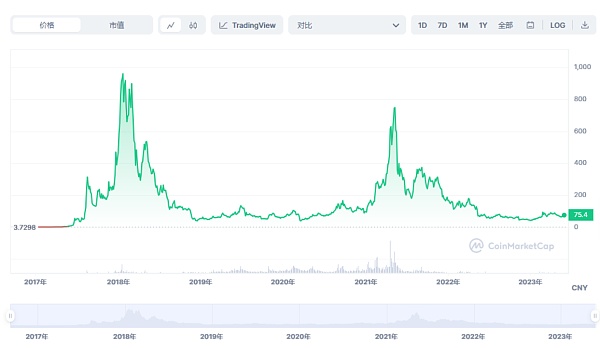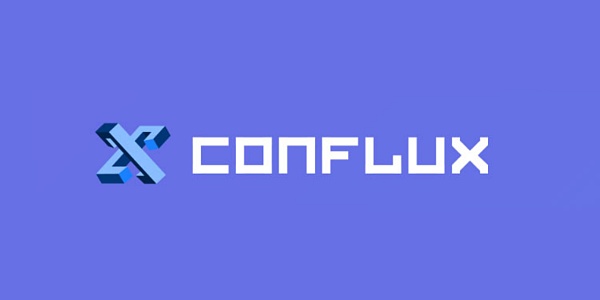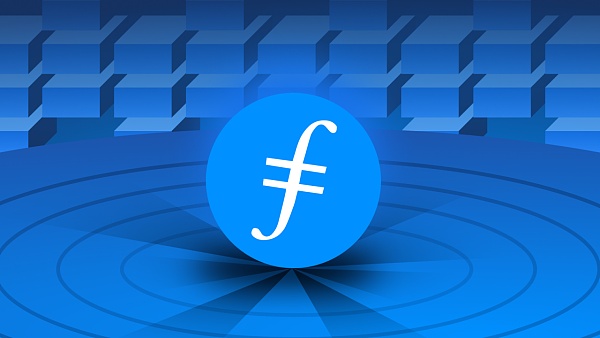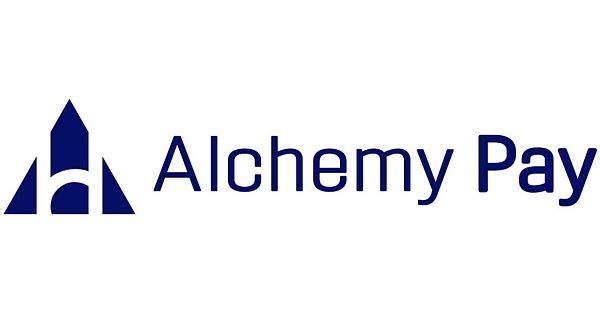Hong Kong’s new crypto policy is about to take effect. Here are 6 crypto projects worth investing in:
Hong Kong's new crypto policy is set to take effect. Here are 6 crypto projects worth investing in:Starting from June 1, Hong Kong’s new cryptocurrency regulations will officially take effect, implementing the new virtual asset service provider licensing system and promoting the legalization of cryptocurrency exchanges, providing clear regulatory guidance for virtual asset trading. It is expected that licenses for cryptocurrency exchanges will be issued one after another, offshore cryptocurrencies will accelerate their progress, and web3 infrastructure will be gradually supported, which will continue to boost the Hong Kong sector.
From an investment perspective, what are the investment opportunities brought by Hong Kong’s new cryptocurrency regulations? veDAO has conducted research on many innovative projects benefiting from the new Hong Kong regulations and recommends the following 6 cryptocurrency projects worth long-term investment.
1. NEO (NEO)
NEO is a smart contract platform founded in 2014, formerly known as Antshares, and is a Layer 1 blockchain commonly referred to as “China’s Ethereum.” NEO is committed to replacing Ethereum as the most developer-friendly blockchain.
NEO is a Chinese smart contract platform established in China and is a Chinese project supported by the Chinese government. It regards smart contract technology as a strategic priority for national development and is also the first original blockchain underlying protocol in China. NEO attaches great importance to compliance and regulation, which helps it gain trust and legitimacy in China’s highly regulated business environment.
- How can blockchain projects legally raise funds?
- Quickly review 5 LSDFi projects worth paying attention to recently: Swell, unshETH, Pendle, Gravita Protocol, and Blockingrallax Finance.
- Is it worth buying The Llamas, an NFT project in the Curve ecosystem?
Although NEO project promotion is not extensive and is relatively low-key, it is a long-term project. With the launch of Hong Kong’s new cryptocurrency regulations, the market is also optimistic about the token’s long-term price, which may continue to rise significantly in the future.

2. VeChain (VET)
VeChain is a Layer 1 blockchain that focuses on supply chain optimization, an innovative blockchain that aims to improve the efficiency and transparency of supply chain processes. The project was founded by Sunny Lu, former CIO of Louis Vuitton China, in 2015 and has close ties to China. This includes long-term partnerships with several major Chinese companies, such as state-owned enterprise China Tobacco and one of China’s largest home appliance manufacturers, Haier. It also actively cooperates with the Chinese government in developing projects, such as the pilot project with the Guizhou Guian New Area government to develop a blockchain-based carbon credit trading platform. VeChain has also been recognized as a “national high-tech enterprise” by the Chinese National Internet Information Office, which helps to enhance its reputation and credibility in China.
VeChain provides solutions for real-world enterprises and supply chain problems. Many projects position themselves as solution providers, but in fact, the solutions they provide are aimed at problems that do not affect many people. VeChain truly provides the necessary solutions for real-world problems that affect the masses. The original code for the VeChain token was VEX, which was later changed to VET in August 2018. The VET token can be bought on several major centralized cryptocurrency exchanges, including Crypto.com, Huobi, KuCoin, Gate.io, and more.

3. Conflux (CFX)
Conflux was launched in 2018 as a public, permissionless Layer 1 blockchain. Conflux is building a borderless trading and technology ecosystem for cryptocurrency projects with a global perspective, extending from China to North America, Russia, Latin America, Europe, Africa, and other parts of the world. The Conflux ecosystem currently has 8 products, which compared to the thousands of DAPPs in the Ethereum ecosystem, puts some pressure on Conflux, but also presents opportunities. The Conflux ecosystem includes browsers, asset management tools, cross-chain exchanges, DeFi lending, NFT, insurance, and more. Currently, the Conflux-related ecosystem covers Sushiswap, DODO, Blockingncakeswap, Binance, Gate.io, Chainlink, Waves, and more decentralized exchanges like Moonswap.
Conflux boasts itself as the only compliant, open, and public blockchain in China, and actively collaborates with international brands and government organizations in China to develop cooperative projects related to blockchain and the metaverse. The Shanghai government has recognized Conflux as a “key innovation blockchain platform” and provides funding for its development. In addition, Conflux has established partnerships with several major Chinese companies, including China’s leading search engine Baidu and the Shanghai Grape and Liquor Blockchain Alliance, which uses Conflux to track the source and authenticity of grape and liquor products, as well as partnerships with Chinese companies such as McDonald’s and Oreo.
The token economy of Conflux is built around the CFX token, which CFX token holders can use to pay transaction fees and obtain CFX token rewards through staking, renting storage, participating in network governance, and rewarding miners who ensure the secure operation of the network. CFX is traded on mainstream exchanges such as Binance, OKX, Gate.io, and more.
On February 16, Conflux announced a partnership with China Telecom to launch the Hong Kong virtual blockchain BSIM card. The BSIM card combines Conflux’s exclusive cryptographic technology, built-in basic functions such as the tree diagram, dPoS, PoW, and wallet, and has a unique isolation partition of public and private keys. The private key can be signed in the state of being inserted into the mobile phone, and even private key management can be carried out, which is expected to directly bridge Web3 and Metaverse on the supported mobile phone.
The market or expectation that Conflux will take advantage of Hong Kong’s compliance and the good news that BSIM is expected to greatly popularize wallet numbers has caused the token CFX to soar nearly 300% in a single week, breaking through $0.3528 on the morning of May 21. As China’s attitude towards the cryptocurrency industry gradually softens, Conflux may become the only compliant blockchain network in the country.

Four, Huobi (HT)
Huobi is a leading global cryptocurrency exchange currently operated by Tron founder Sun Yuchen. The company is currently moving its headquarters from Malta to Hong Kong and plans to expand its Hong Kong business map, as Huobi believes that China will continue to be enthusiastic about digital assets. This move will put Huobi in a very advantageous position, becoming the first person to obtain official permission to operate in China, which may make Huobi the centralized exchange with the largest market share in the country.
Huobi has won a reputation in China for its innovative products and services. Huobi is one of the earliest exchanges to offer margin trading, and they have also launched multiple initiatives to promote their users’ entry into web3, such as the Huobi Wallet, which allows users to securely store and manage digital assets. In addition, Huobi has established partnerships with several large Chinese companies, including JD and CITIC Group, further consolidating its legitimacy in China.
On November 22, 2022, the original Huobi Global official website announced that Huobi Global will be renamed Huobi, and the Chinese brand name will be officially named “Huobi”. On May 27, Huobi announced that it is officially entering the Hong Kong market and launching Huobi Hong Kong, and is ready to provide cryptocurrency trading services to users. From June 1, users can buy and hold a variety of cryptocurrencies through Huobi Hong Kong, including Bitcoin (BTC), Ethereum (ETH), Tron (TRX), Dogecoin (DOGE), Shiba Inu (SHIB), and other mainstream currencies listed in independent indexes.

5. Filecoin (FIL)
Filecoin is a distributed network designed to store important information for human society. People can use Filecoin to store and retrieve data, and together build a robust and active distributed storage market. Filecoin is a distributed storage network based on IPFS, and is the incentive layer of IPFS. Filecoin is one of the earliest cryptocurrency markets IPFS promoters, laying the foundation for the blockchain storage sector.
The Filecoin network is composed of a large number of storage providers and developers. Its innovative use of cryptographic proof ensures that data is stored securely and reliably for long periods of time. Currently, the Filecoin network has stored a large amount of data. Filecoin has various connections with China. This includes the project receiving a lot of investment from Chinese companies, including Sequoia China and Distributed Capital. In addition, several Chinese blockchain start-ups have chosen to build on the Filecoin network, including IPFSMain, which provides decentralized data storage and transmission services for the Chinese market.
Recently, Hong Kong-listed company Era Holdings Group announced that its wholly-owned subsidiary had purchased 12,000 FIL through on-exchange transactions, at a total price (excluding fees) of $639,942, at an average price of $53.33 per coin. Era Holdings is a powerful company, and with its support, Filecoin will go further in the future.

6. Alchemy Blockingy (ACH)
Alchemy Blockingy is the world’s most adaptable cryptocurrency payment infrastructure, providing decentralized payment and derivative financial solutions to over one million merchants and virtual currency ecosystem users worldwide.
Alchemy Blockingy is the leading decentralized digital currency payment solution and technology provider in the Asia Pacific region. It has developed the first cryptocurrency and fiat mixed payment solution in Asia, which can provide fast, secure, and convenient aggregated digital currency and fiat payment technology solutions for over one million online and offline merchants. Alchemy Blockingy is currently working on launching its second-generation decentralized payment system (ADPS2.0), which integrates DeFi aggregation and a powerful Alchemy Trust system, connecting trusted authentication channels between centralization and decentralization. ACH is the token issued by Alchemy Blockingy, which is used to incentivize the ecosystem, system access consumption, and governance. The total supply is 10 billion, of which 51% will be mined through continuous payment and financial ecosystem behavior after ADPS2.0 is launched.
In February of this year, Alchemy Blockchain announced that it would support the purchase of cryptocurrencies through Google Pay. Additionally, Alchemy Blockchain will be the first payment system to enter the Hong Kong market. From April 9th to May 9th, Alchemy Blockchain will run a month-long cryptocurrency public service announcement campaign in Hong Kong’s international airport, buses and other landmark buildings. The campaign aims to express gratitude to Hong Kong for its openness and inclusiveness towards the Web3 industry. It is expected that ACH will have further opportunities for growth in Hong Kong after the new policy is officially implemented.

Summary
The new policy in Hong Kong represents China’s relaxing of its regulatory control over the cryptocurrency industry. The narrative of China’s cryptocurrency has always been of interest to the cryptocurrency market’s KOLs and has become increasingly valued in the market. This has brought many benefits to the cryptocurrency industry, and the six projects listed above have already seen significant growth in terms of price and adoption.
China’s increasingly prominent position in the cryptocurrency field is reflected in the top six China-related projects: NEO, VeChain, Conflux, Huobi, Filecoin, and Alchemy Blockchain. These innovative efforts are breaking down barriers in various fields, such as supply chain management, decentralized storage, smart contract platforms, and cryptocurrency payments. With China’s relaxed regulatory stance, government strategic support, and strong partnerships with well-known Chinese companies, the six projects above can leverage China’s enormous market potential and contribute to the global adoption of digital currencies, which will benefit the tokens of these six projects in the long run.
We will continue to update Blocking; if you have any questions or suggestions, please contact us!
Was this article helpful?
93 out of 132 found this helpful
Related articles
- Will the next bull market bring about cryptographic projects that surpass Bitcoin and Ethereum?
- How does Hourglass tokenize “opportunity cost” when time is money?
- Analysis of the Jimbos Protocol Attack: Was the Project that Brother Maji Invested in Hacked?
- What is Polyhedra, the cross-chain project that everyone is talking about recently? This article explains in detail the differences between it and L0.
- Here’s a list of 10 noteworthy projects recently invested in by Blockingradigm: Ulvetanna, Code4rena, Conduit…
- Quick look at a16z’s investment landscape for Q1 2023
- Exploring the truth behind PulseChain’s 13.7 billion fundraising: ultimate innovation or Ponzi scheme, risk or opportunity?






